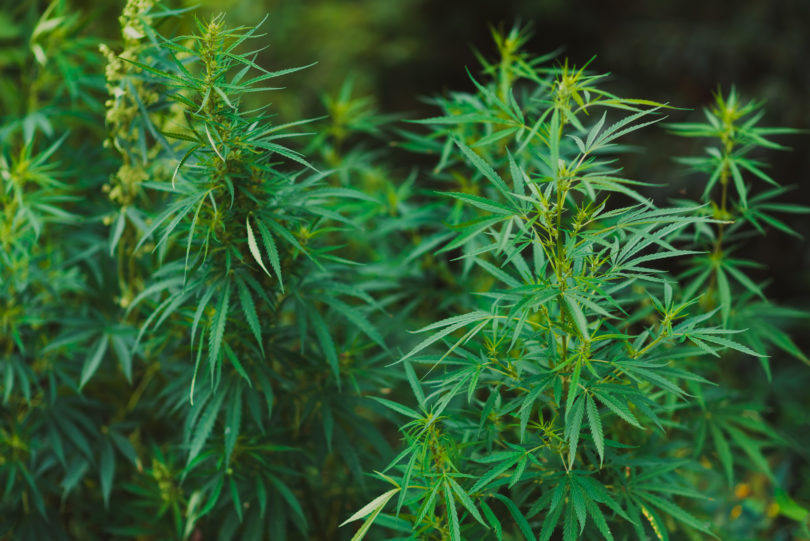Cannabis activist Jack Herer once opined that hemp is the only thing that could save the world. So when the new Farm Bill was written into law last year, many believed it to be the birth of an industry with world-changing potential.
While they might yet be correct in their beliefs, the national liberalization of hemp has not been without some hurdles. Tightening regulations, lack of infrastructure, and ‘hot’ crops have all contributed to a difficult year for those who have turned their hand to hemp farming.
Here are some of the main problems plaguing the hemp industry today:
New regulations
USDA issued an interim final rule last month. If signed into law, it will lay the regulatory groundwork for hemp manufacturers. It’s not been met with excitement from the hemp advocates and industry stakeholders, however, thanks to a number of restrictive controls on things like licensing, THC restrictions and testing requirements.
While the release of the regulations does provide much-needed clarity for producers, many believe that certain provisions as excessively restrictive and possibly damaging to the industry. Over 500 comments have been made during the 60-day comment period, which closes on December 30.
One of the most contentious points covered in the new regulations is the limit on total THC rather than just delta-9-THC, which is limit that the industry was operating under. By restricting total THC to under 0.3%, you’re essentially restricting all cannabinoid production as it’s hard to high CBD content if you’re capping THC so low.
Oversupply
A lot of people were so keen to jump into farming hemp that they didn’t really consider who they would sell it to post harvest. Time was spent finding quality genetics and getting seeds in the ground, and then intensive labor needs during the seasons, while it was assumed the demand would be there when it came time to sell.
However, with hemp acreage up more than 300% this year, current estimates suggest that producers are growing 8 times more hemp for CBD than can be consumed by the market, despite its rapid growth. This could result in a price crash on hemp biomass and flower that could hit small businesses hard.
Lack of processing capabilities
Many farmers rely on third parties to process their hemp biomass into CBD. There’s currently not enough processing capacity to get through the entire amount of harvested crop, however.
One reason for a lack of processing capacity is a lack of support from banks when it comes to financing needed for infrastructure and machinery. This is due to the association of hemp with drug-type cannabis.
Another cause for the bottleneck is that some new processors underestimated costs and overestimated their potential capacity. This led to many reneging on contracts and leaving farmers in the lurch.
Inconsistent genetics
Much of the hemp that was planted this year would not be allowed to be harvested under new regulations on total THC. In fact, finding seeds that reliably produce less than 0.3% is going to prove very tricky for farmers.
This season saw a large chunk of crops destroyed due to too-high THC levels. In Hawaii, more than half of 2019’s crop had to be destroyed because of elevated THC levels, due to a lack of cultivars suited to the area.
There are other things to consider in the local growing environment, including soil condition and weather. This growing season particularly suffered at the hands of unpredictable weather.
Lack of experience
Growing hemp for CBD is a lot more labor intensive than many new growers first realized. Just like with growing cannabis for THC, producing high-quality and CBD-rich hemp flower – either for processing into CBD products or to be trimmed and cured for smoking takes quite a bit of effort.
Summary
Hemp may yet have a huge impact on the world. But that doesn’t mean it will be plain sailing all the way – as many hemp farmers found out this year.
There are a number of challenges to circumvent and it’s not known how the hemp industry will respond. If it’s as hardy as the plant itself, however, it would be unwise to write it off just yet.
For more stories like this one, subscribe to the CBD Flowers Business Newsletter.

The situation in the UK is very different, British hemp farmers who were previously growing it for the production of fibre and paper, realised they could establish a sustainable business by producing their own CBD oil, which is now being sold in almost every high street in the UK. When they informed the Secretary of State what their intentions were,, their licenses were revoked. It’s like telling a farmer that he can only grow beetroots, if he agrees not to open up his own pickling plant. As a result, companies in the UK source the raw material from Canada, America, Holland or elsewhere and then turn it into everything under the sun, from tinctures to soap, shampoo and cream and even as an additional boost in your café latte in your local CBD coffee shop. CBD is not a controlled substance and if the farmer is willing to invest in the necessary machinery and technology to turn his crop into CBD oil, he should be free to do so and the fact that he is not, raises serious questions.
There is no point in leaving a reply, you never publish them !
Sorry for that. Just did.
Many thanks !